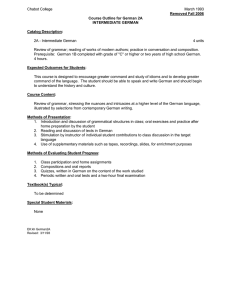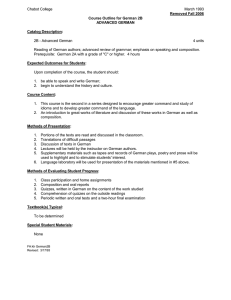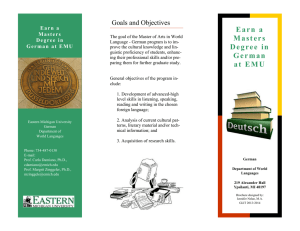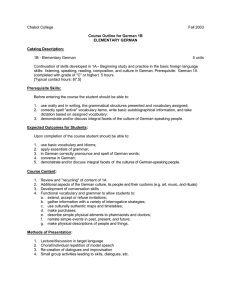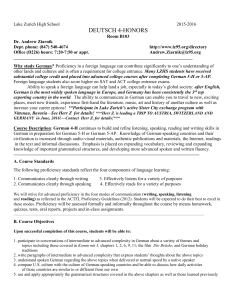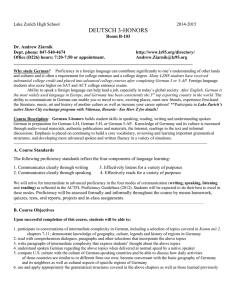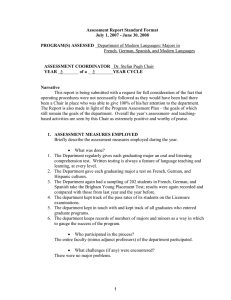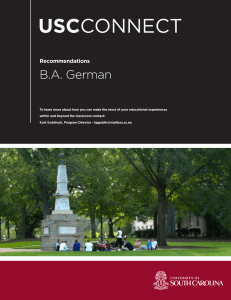Form E-1-A for Boston College Undergraduate Programs : GERMAN STUDIES
advertisement
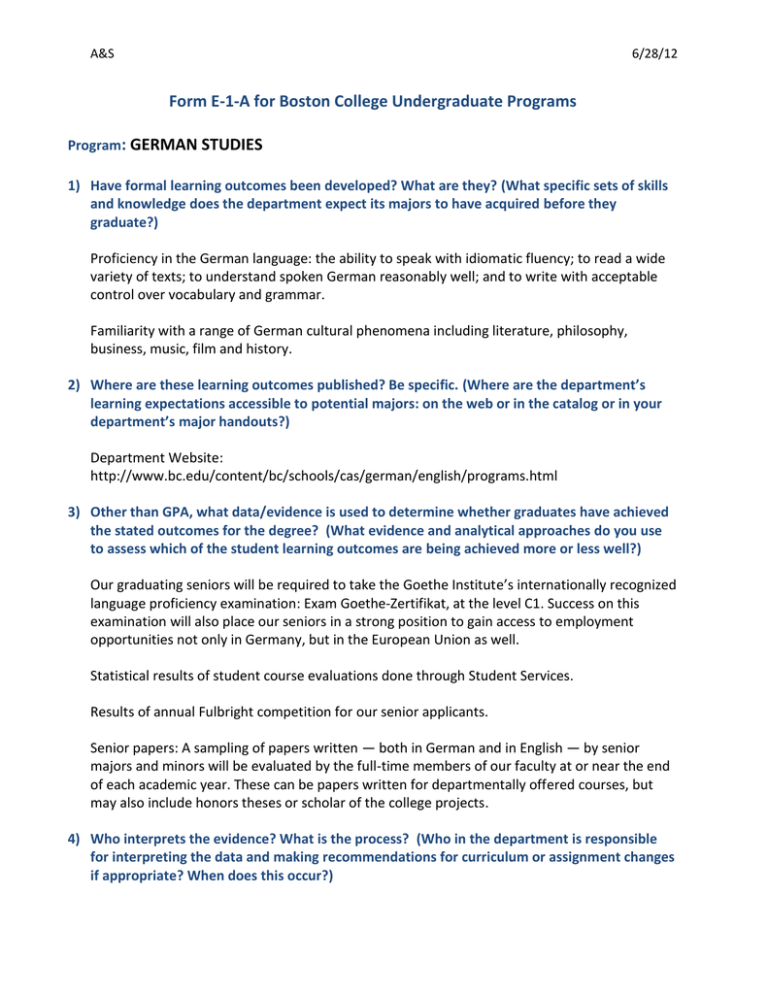
A&S 6/28/12 Form E-1-A for Boston College Undergraduate Programs Program: GERMAN STUDIES 1) Have formal learning outcomes been developed? What are they? (What specific sets of skills and knowledge does the department expect its majors to have acquired before they graduate?) Proficiency in the German language: the ability to speak with idiomatic fluency; to read a wide variety of texts; to understand spoken German reasonably well; and to write with acceptable control over vocabulary and grammar. Familiarity with a range of German cultural phenomena including literature, philosophy, business, music, film and history. 2) Where are these learning outcomes published? Be specific. (Where are the department’s learning expectations accessible to potential majors: on the web or in the catalog or in your department’s major handouts?) Department Website: http://www.bc.edu/content/bc/schools/cas/german/english/programs.html 3) Other than GPA, what data/evidence is used to determine whether graduates have achieved the stated outcomes for the degree? (What evidence and analytical approaches do you use to assess which of the student learning outcomes are being achieved more or less well?) Our graduating seniors will be required to take the Goethe Institute’s internationally recognized language proficiency examination: Exam Goethe-Zertifikat, at the level C1. Success on this examination will also place our seniors in a strong position to gain access to employment opportunities not only in Germany, but in the European Union as well. Statistical results of student course evaluations done through Student Services. Results of annual Fulbright competition for our senior applicants. Senior papers: A sampling of papers written — both in German and in English — by senior majors and minors will be evaluated by the full-time members of our faculty at or near the end of each academic year. These can be papers written for departmentally offered courses, but may also include honors theses or scholar of the college projects. 4) Who interprets the evidence? What is the process? (Who in the department is responsible for interpreting the data and making recommendations for curriculum or assignment changes if appropriate? When does this occur?) A&S Discussion annually at a dedicated departmental meeting. 6/28/12




